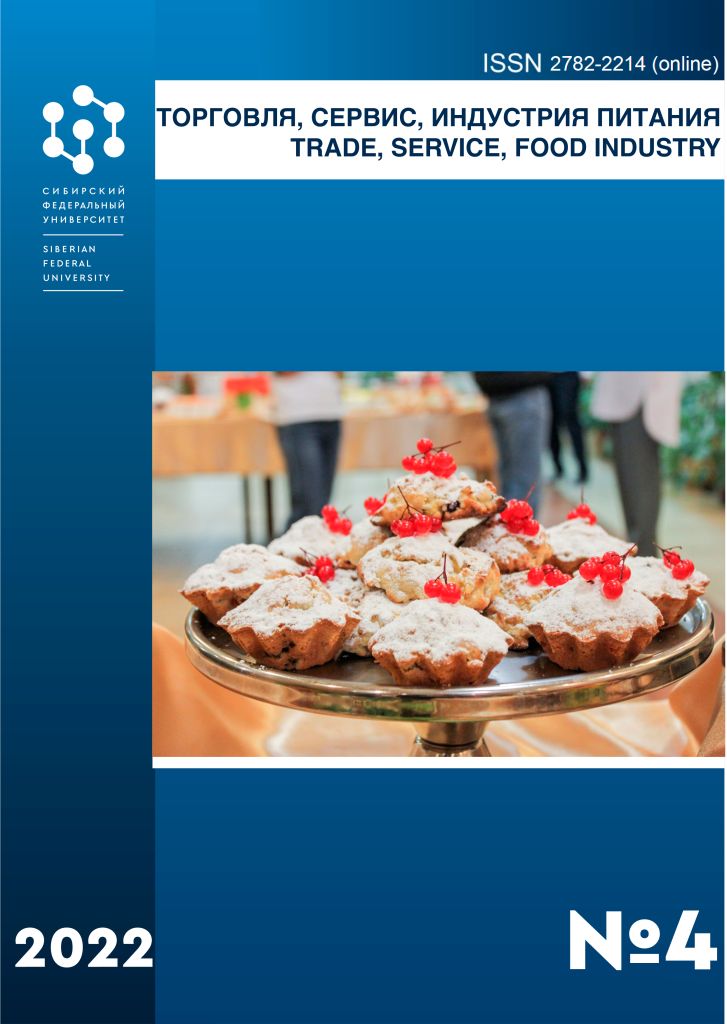Krasnoyarsk, Russian Federation
Krasnoyarsk, Russian Federation
UDC 33
The article notes the role of digital transformation in the context of globalization, examines its historical aspects, provides an overview of concepts, notes the author's approach to research, and also suggests classification features for further classification of the digital transformation system. In the course of the presented assessment, the relationship of digital transformation with the processes of integration and globalization is noted. The analysis of the research materials indicates a comprehensive assessment of the concept of "digital transformation", a comprehensive approach of many groups of authors. The article presents the features of the studied processes as an actual tool of globalization. It is noted that every year the role and importance of digital transformation processes increases and this trend, based on the influence of environmental factors, will continue in the near future. The purpose of the study is determined by the need to develop a unified approach to the assessment of the concept of "digital transformation". The research objectives are related to determining the impact of digital transformation on the processes of globalization, evaluating processes as a tool of globalization. The relevance of the research lies in the need to use a system of digital tools to increase the efficiency and effectiveness of transformation processes while achieving an integrated effect in globalization.
transformation, digitalization, globalization, digital transformation, global transformation, digital technologies
1. Smirnova, S. S. (2022). Industrial digital "revolution". Moscow : Rebus. 314 p.
2. Tereshina, N. G. (2022). Digital economy and business. Moscow : NTO. 129 p.
3. Jin, D. (2022). Digital transformation of economic sectors. Economics and society. 1-2(92). 335-338.
4. Bogner, R., Konstantinidis, A. (2015). Introduction to digital filtering. Moscow : Vimpel. 468 p.
5. Markova, V. D. (2018). Digital Economy. Moscow : INFRA-M. 186 p.
6. Olifirov, A. V., Makoveychuk, K. A., Petrenko, S. A. (2019). Transformation of business models in the digital economy. International Journal of Information Technologies. 4. 85-91.
7. Gavrilova, E. N. (2019). Platforms and business ecosystems as forms of business organization in the digital economy. Digital economy: problems and prospects of development : collection of scientific articles of the interregional scientific and practical conference. Kursk : Southwest State University. 259-264.
8. Valigursky, D. I. (2021). Organization of commercial activity in the market infrastructure. Moscow : Dashkov and Co. 298 p.
9. Sergeev, L. I., Yudanova, A. L. (2020). Digital Economy : textbook. Moscow : Yurayt. 332 p.
10. Naumenko, A. I., Shapovalova, A. V. (2021). Global trends of digital transformation of retail trade during the coronacrisis. Siberian Financial School. 1(141). 74-87.
11. Rainer, G., Bernd, L. (2018). Digital revolution in trade: strategies, technologies, transformation. Moscow : Scientific Review. 346 p.
12. Butenko, N. A., Bogatov, A. I. (2022). Digital economy and globalization processes. Modern trends in the development of science and the world community in the era of digitalization : a collection of materials of the international scientific and practical conference. Moscow : Institute for the Development of Education and Consulting. 220-223.
13. Beregovaya, I. B. (2019). Digitalization of the sphere of trade services as a direction of high-tech development. Orenburg horizons: past, present, future : collection of materials of the All-Russian scientific and practical conference. Orenburg : Frontier. 8-11.
14. Overchenko, N. V. (2019). Digitalization as a tool for improving the efficiency of trade enterprises. Digital paradigm of society development : a view from the future : a collection of scientific papers based on the results of the student scientific and practical conference. Saratov : Plekhanov Russian University of Economics. 48-50.
15. Batura, A. V. (2022). Business success in the digital economy. Horizon of Science - 2022 : materials of the All-Russian Scientific and practical conference. Krasnodar : Krasnodar Cooperative Institute. 16-21.
16. Chernyak, V. (2018). Popular History of Economics and business. Moscow : Veche. 512 p.
17. Evnevich, M. A. (2017). Customer orientation in the digital economy. Moscow : Synergy. 416 p.
18. Leonova, A. N. (2021). Digital economy and trade. Moscow : Delo. 199 p.
19. Filimonov, I. V. (2020). Ecosystem of digital economy: problems of subject identification. Innovations and investments. 6. 51-58.
20. Tereshina, N. G. (2022). Digital Economy and Business. Moscow : NTO. 129 p.
21. Gorskina, L. S., Propp, O. V. (2020). Features and problems of digitalization in Russian regions. Managerial and service potential of the digital economy: problems and prospects: materials of the international scientific and practical conference. Omsk : Omsk State Technical University. 41-44.
22. Smyslov, D. (2019). Evolution of globalization of the world economy : modern trends. World Economy and International Relations. 2. 5-12.
23. Gromakov, Yu. S., Bezgodova, T. V. (2022). Instruments of digitalization of technological processes. Young researcher. 1(34). 15-20.
24. Andreeva, A. L. (2021). Activity of enterprises on the use of modern technologies. Moscow : Delo. 73 p.
25. Savina, A. G., Sumakov, N. S., Savin, D. A. (2019). Specifics and directions of digital transformation of retail trade. Economic environment. 2(28). 9-15.
26. Bordunov, I. V. (2020). Digitalization in supply chain management. Economy: yesterday, today, tomorrow. 6-1. 177-184.
27. Vishnevsky, K. O., Gokhberg, L. M., Dementiev, V. V. (2021). Digital Technologies in the Russian Economy. Moscow : HSE. 116 p.
28. Smirnova, S. S. (2022). Industrial digital "revolution". Moscow : Rebus. 314 p.








